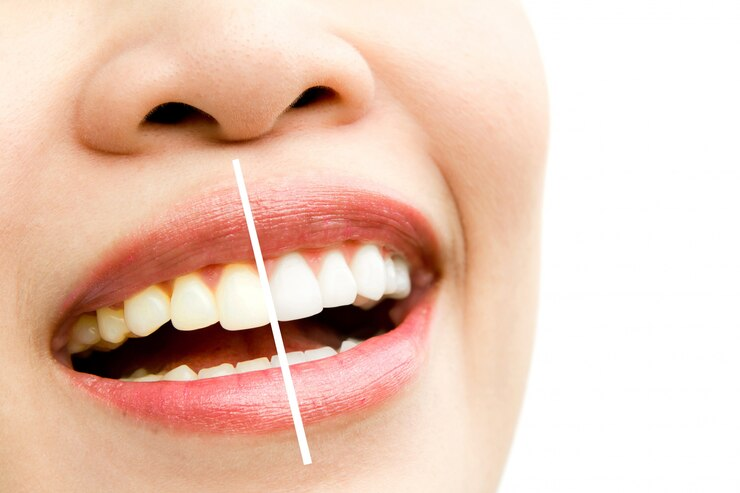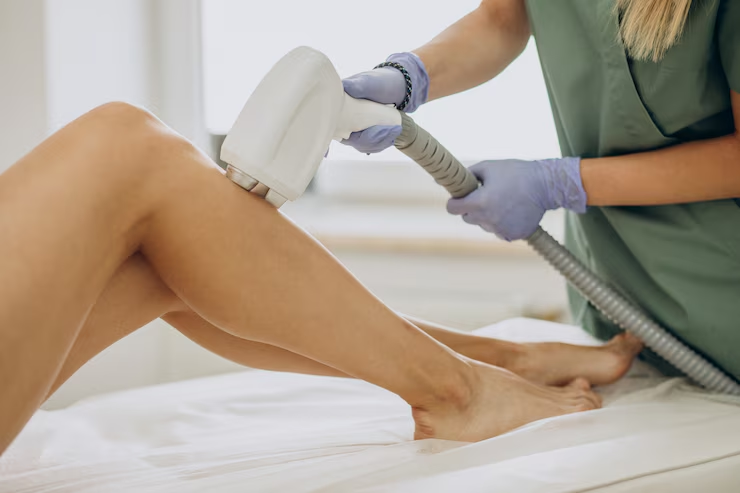Transform Your Skin with Laser Acne Treatment Today
Acne is a common skin condition that affects millions of people worldwide, regardless of age or skin type. While various topical treatments, medications, and lifestyle adjustments can help, many people find that stubborn acne and its scars require more advanced care. Laser Acne Treatment Dubai has emerged as a highly effective solution for managing acne and improving skin texture. This non-invasive technology can not only help reduce active acne but also target scars left by previous breakouts.
In this article, we will explore how laser acne treatment can transform your skin, focusing on the process, benefits, and aftercare. We’ll also take a closer look at how laser therapy compares to other treatments and what to expect throughout your skincare journey.
Understanding Laser Acne Treatment
Laser acne treatment works by using light energy to target and reduce acne-causing bacteria and inflammation deep within the skin layers. The laser heats up the oil-producing glands (sebaceous glands), reducing their activity and helping to balance oil production. This process can significantly reduce the occurrence of acne breakouts.
Different types of lasers are used for acne treatment, depending on the severity and type of acne, including:
- Ablative lasers: These lasers remove the outer layers of the skin, promoting collagen production and reducing acne scars.
- Non-ablative lasers: These work beneath the skin’s surface, stimulating collagen production without damaging the outer layer.
- Fractional lasers: These lasers target a fraction of the skin at a time, creating microscopic injuries that promote skin regeneration and reduce scarring.
How Laser Acne Treatment Works
The key to laser acne treatment’s success is its ability to penetrate the skin and address acne’s root causes. Here’s a general overview of how it works:
Bacteria Reduction: One of the leading causes of acne is the presence of Propionibacterium acnes (P. acnes), a bacterium that thrives in clogged pores. Laser therapy targets and kills these bacteria, helping to reduce existing acne and prevent future breakouts.
Sebum Control: Overactive sebaceous glands can lead to oily skin, which increases the likelihood of clogged pores and acne. Laser acne treatment helps shrink these glands, leading to a reduction in oil production. This prevents the formation of new acne lesions.
Inflammation Reduction: Acne often involves inflammation, which can cause pain, swelling, and redness. The heat generated by laser treatments helps reduce inflammation, resulting in calmer, clearer skin.
Collagen Production: Many laser treatments stimulate collagen production in the skin. Collagen is essential for healing acne scars, improving skin elasticity, and giving the skin a smoother, more youthful appearance.
Types of Acne Laser Treatments
There are several laser therapies available for treating acne, each offering unique benefits. Some common options include:
- Pulsed Dye Laser (PDL): This laser targets blood vessels beneath the skin's surface, reducing inflammation and redness associated with acne.
- Fractional CO2 Laser: Often used for treating acne scars, this laser works by creating microscopic injuries in the skin, promoting the growth of new, healthy skin cells and collagen.
- NdLaser: This treatment penetrates deeper layers of the skin and is often used for moderate to severe acne. It helps reduce acne-causing bacteria and inflammation.
- Blue Light Therapy: A non-laser light treatment that specifically targets acne bacteria, reducing breakouts over time.
Benefits of Laser Acne Treatment
There are several reasons why laser acne treatment has gained popularity in recent years. Some of the most notable benefits include:
1. Long-Lasting Results
Laser treatment offers long-term improvements in both active acne and acne scars. By targeting the underlying causes of acne, it helps prevent future breakouts, meaning fewer blemishes in the long run.
2. Reduces Acne Scars
Laser acne treatment is not only effective at reducing acne but is also one of the best options for treating acne scars. Over time, acne scars can fade as the laser stimulates collagen production, leading to a smoother and more even skin texture.
3. Non-Invasive
Laser therapy is a non-invasive treatment that doesn’t require surgery or harsh chemicals. It’s performed in a clinical setting, and patients can typically resume their normal activities within a short period, depending on the type of laser used.
4. Suitable for All Skin Types
There are laser options available for every skin type and tone. This makes it a versatile treatment option for people with different kinds of acne and skin concerns.
5. Minimal Downtime
Depending on the laser used, downtime can range from none to just a few days. Most non-ablative laser treatments allow patients to return to their daily routine almost immediately.
6. Improved Skin Tone and Texture
Beyond reducing acne and scars, laser treatment can improve the overall texture and tone of the skin. It tightens pores, smoothens the skin surface, and enhances the skin’s glow, giving it a rejuvenated appearance.
What to Expect During a Laser Acne Treatment Session
Before undergoing laser acne treatment, you’ll typically have a consultation with a dermatologist or skincare professional. During this consultation, they will assess your skin type, acne severity, and overall health to determine the best course of treatment.
Here’s what you can expect during a session:
- Preparation: The treatment area will be cleaned, and eye protection will be provided to shield your eyes from the laser light.
- Laser Application: The dermatologist will use a handheld laser device to target the acne-affected areas. The treatment might feel like mild pinpricks or warmth, depending on the type of laser.
- Post-Treatment Care: After the session, you may experience some redness or swelling, which typically subsides within a few hours to days. Your skin will need time to heal and regenerate, so following post-treatment care guidelines is crucial.
Aftercare for Laser Acne Treatment
After undergoing laser acne treatment, taking proper care of your skin is essential to ensure optimal results and prevent complications. Here are some aftercare tips:
- Sun Protection: Your skin will be more sensitive to sunlight after laser treatment. Use broad-spectrum sunscreen with SPF 30 or higher to protect your skin from UV damage.
- Gentle Skincare: Avoid harsh exfoliants, retinoids, and acne medications for a few days after treatment. Stick to gentle cleansers and moisturizers to keep your skin hydrated and calm.
- Stay Hydrated: Drink plenty of water to promote skin healing from within and keep your skin hydrated during the recovery process.
- Avoid Picking: It may be tempting to touch or pick at your skin, especially if there’s slight peeling, but resist the urge. Picking can lead to further irritation and scarring.
- Follow-Up Treatments: Depending on the severity of your acne and the laser used, you may need multiple sessions for optimal results. Stay committed to your treatment plan and follow up with your skincare professional as recommended.
Comparing Laser Acne Treatment with Other Options
Laser acne treatment isn’t the only method available for managing acne. Other options include topical treatments, oral medications, chemical peels, and microdermabrasion. Here’s a brief comparison of how laser treatment stacks up against other acne solutions:
Topical Treatments
Topical treatments, such as benzoyl peroxide, salicylic acid, and retinoids, are commonly used to treat mild to moderate acne. While they can be effective, they may take several weeks or months to show results, and they don’t address acne scars as effectively as laser treatments.
Oral Medications
For severe acne, dermatologists may prescribe oral antibiotics or hormonal treatments (such as birth control or anti-androgens). These treatments are effective but can come with side effects, such as dry skin, digestive issues, and, in some cases, long-term risks.
Chemical Peels and Microdermabrasion
Chemical peels and microdermabrasion are non-laser methods for exfoliating the skin and treating acne. While they can improve skin texture and reduce breakouts, they are less effective than laser treatments in targeting deeper acne scars and bacteria.
Laser Treatment
Laser treatment offers the advantage of targeting both active acne and scars while promoting long-term skin health. It’s often faster and more effective than topical treatments and offers fewer side effects than oral medications. However, it may require multiple sessions and proper aftercare to achieve the best results.
Is Laser Acne Treatment Right for You?
Laser acne treatment is suitable for many individuals, particularly those who have not found success with traditional treatments or who are dealing with acne scars. However, it’s not recommended for everyone. People with certain skin conditions, such as rosacea or eczema, may not be ideal candidates. Additionally, those with darker skin tones may need to choose specific laser types to avoid hyperpigmentation.
Before deciding on laser acne treatment, it’s essential to have a thorough consultation with a qualified professional. They can assess your skin’s needs and recommend the most appropriate treatment plan.
Conclusion
Laser acne treatment is a powerful option for those looking to transform their skin and address both acne and its associated scars. With advancements in technology, these treatments are now safer and more effective than ever, providing long-lasting results with minimal downtime. If you're ready to take control of your skin and achieve a clearer, smoother complexion, laser acne treatment may be the solution you've been looking for.
By following a professional treatment plan and maintaining proper skincare, you can experience the benefits of radiant, healthy skin. Whether you struggle with active acne or are seeking to reduce scars, laser technology offers a path to renewed confidence and beauty.




Comments
Post a Comment